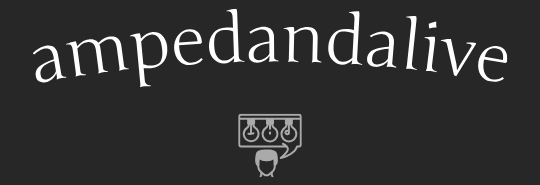The Complexity of Holding Companies and Ethical Oversight
Holding companies, by their very nature, present a unique challenge to ethical oversight. Their structure, often involving layers of subsidiaries and complex ownership arrangements, can make it difficult to pinpoint responsibility when ethical lapses occur. This opacity allows wrongdoing to be hidden within the corporate labyrinth, making accountability a frustrating and often unsuccessful pursuit. Holding companies might claim limited involvement in the day-to-day operations of their subsidiaries, effectively distancing themselves from any unethical actions taken by those subsidiaries. This creates a significant gap in accountability and requires a more sophisticated approach to ethical enforcement.
The Need for Enhanced Transparency and Disclosure
A crucial step towards holding holding companies accountable is demanding greater transparency and disclosure. Current regulations often fall short in requiring detailed information about the structure and operations of these complex entities. Mandatory reporting requirements should be strengthened to include comprehensive details about subsidiaries, their activities, and the flow of funds within the entire corporate structure. This improved transparency would enable regulators and stakeholders to better identify potential ethical risks and hold the appropriate entities accountable for their actions. Increased transparency also empowers consumers and investors to make more informed decisions, choosing to support ethical companies and divesting from those with questionable practices.
Strengthening Regulatory Frameworks and Enforcement
Existing regulatory frameworks are often ill-equipped to deal with the intricate structures of holding companies. Laws and regulations need to be updated to explicitly address the accountability of holding companies for the actions of their subsidiaries, regardless of the level of direct involvement. This requires a shift in legal thinking, moving away from a strict focus on direct control and towards a more holistic approach that considers the overall influence and responsibility of the parent company. Furthermore, stronger enforcement mechanisms are needed, with increased penalties for ethical violations and a commitment to vigorous investigation and prosecution.
The Role of Independent Oversight Boards and Audits
The establishment of independent oversight boards with the power to scrutinize the activities of holding companies and their subsidiaries is vital. These boards should be composed of individuals with expertise in ethics, finance, and corporate governance, ensuring impartiality and robust oversight. Regular and comprehensive audits, including ethical audits, should be mandatory, providing independent assessments of compliance and identifying potential risks. The findings of these audits should be publicly accessible, further contributing to transparency and accountability. This independent scrutiny adds another layer of accountability beyond internal mechanisms, which can often be compromised or ineffective.
Empowering Whistleblowers and Protecting Their Rights
Whistleblowers play a critical role in uncovering ethical violations within organizations. Holding companies, with their complex structures, often create environments where whistleblowers face significant risks in reporting unethical conduct. Strengthening whistleblower protection laws is essential to encourage individuals to come forward without fear of retaliation. This includes providing robust legal protection, establishing confidential reporting channels, and ensuring swift and thorough investigations into reported violations. Empowering whistleblowers is key to ensuring that unethical practices are not swept under the rug within the complex web of a holding company.
Promoting a Culture of Ethical Conduct Within Holding Companies
Ultimately, holding companies must cultivate a culture of ethical conduct at all levels of their organizations. This requires a commitment from top leadership to prioritize ethical decision-making, implement robust ethical codes of conduct, and provide regular ethics training to employees. Companies should also establish clear mechanisms for reporting and investigating ethical concerns, ensuring that all employees feel comfortable raising issues without fear of retribution. A culture that values ethical behavior is crucial, not just for compliance, but for long-term sustainability and success. This proactive approach, combined with strong external oversight, provides the best chance of ensuring ethical conduct within these complex corporate entities.
The Importance of Stakeholder Engagement and Pressure
Stakeholders, including investors, consumers, employees, and civil society organizations, have a crucial role to play in holding holding companies accountable. By demanding greater transparency, engaging in responsible investment practices, and actively voicing concerns about unethical behavior, stakeholders can exert significant pressure on these powerful entities. Boycotts, shareholder activism, and public campaigns can effectively draw attention to ethical failures and push for meaningful change. This collective pressure from a variety of stakeholders complements regulatory efforts and reinforces the importance of ethical conduct in the corporate world. Read also about Business ethics enforcement.


